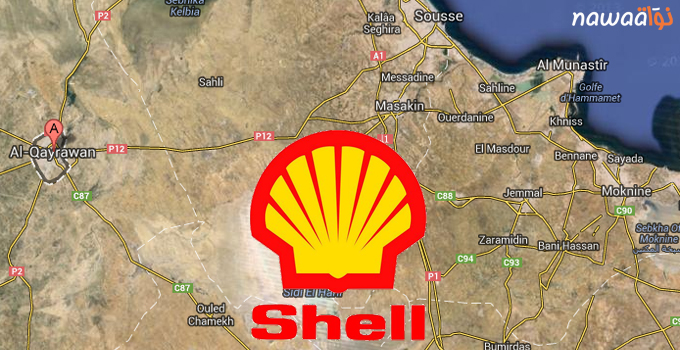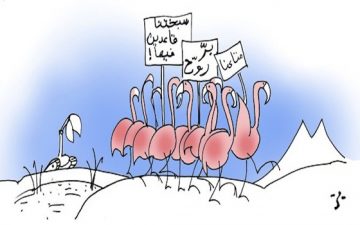 The fight against shale gas extraction through hydraulic fracturing continues in Tunisia where governments are lying and the water weary warn of disasters ahead.
The fight against shale gas extraction through hydraulic fracturing continues in Tunisia where governments are lying and the water weary warn of disasters ahead.
Last year, in November 2012, Shell was met with a surprisingly active Tunisian civil society following statements made by Lamine Chakhari, former Minister of Industry, announcing that Shell had been granted exploration permits, where exploration wells would be expected to be drilled in 2013.
The production sharing agreement between the Tunisian Company of Petroleum Activities (ETAP) and Shell was concluded without waiting for the results of the Environmental Impact Assessment Study.
Since then, Tunisian environmentalists and various civil society organizations have continued to denounce Shell and the known environmental dangers associated with fracking activities.
On the 8th of December for example, a scientific debate at the National School of Engineers in Monastir took place between Tunisian experts in the field of fossil fuels. Meanwhile government authorities and company representatives have become increasingly elusive about what the future for shale extraction is in Tunisia.
Recent statements from Mohamed Akrout, CEO of ETAP, Ben Rchid Dali, CEO of energy, Zuhair El Khadi, research director at the institute of Strategic Studies and various economist at the Tunisian Institute of Competitiveness and Quantitative Studies all deny the existence of shale gas drilling in Tunisia.
Sadly they are lying. In depth investigations by Nawaat, an independent group blog run by Tunisians, and leaked documents reveal that over 35 holes have already been drilled in 16 months in an area of 6 km squared by various companies such as Perenco, Rigo and Storm Oil Venture, and drilling company Schlumberger.
The confidential documents also reveal long lists of toxic chemicals being used in the multi-stage hydraulic fracturing activities, including practices which disregard warnings against the dumping of chemicals into the environment.
It turns out that SVI and Rigo Oil want, from 2013, to re-inject toxic laden liquids used in fracking back into the ground.
Lets speak facts and numbers: Shell’s Shale extraction in the region of Kairouan
Leaked confidential governments reveal that, in case the exploration phase is successful and production permits are granted, a total of 742 wells spread throughout the Kairouan region will be drilled by Shell for about 50 years.
This gives, on average, one well for every five square kilometers license Kairouan, a little over 2 miles between two wells drilled each month.
With 742 wells x 10 fracks per well x 20 million liters of water per frack = 300 billion liters of water consumed in 50 years.
Tunisia already suffers from issues of water scarcity – how can we even begin to think that shale extraction is sustainable for Tunisia?
For every job created in the shale gas industry in Tunisia, hundreds of agricultural jobs will be lost. It is sufficient to travel the country to see that Tunisia is still heavily dependent on its land for food production. Every day, millions of farmers still plow their land with donkeys and women are bent on their backs harvesting crops.
What will happen to these people if their irrigation waters are polluted or if water scarcity created by Shell and other oil companies prevents them from producing food?
Kairouan is not only situated in one of the most seismic areas in Tunisia but also it sits at the convergence of main groundwater and freshwater sources of mineral water for the country. Compromise of these waters with liquid toxic and carcinogenic fracking is no doubt an enormous ecologic, economic and social disaster in an already water scarce country.
No country in the world can treat waste water from fracking which are laden with carcinogens, hormone disruptors, and dissolved gases. Tunisia is currently incapacitated to treat waste water for irrigation purposes, let alone deal with contaminated groundwater.
Arguments which state that Tunisia will benefit from shale extraction because it will become energetically independent (Tunisia currently imports expensive gas from Algeria for electricity production) forget that energy self-sufficiency can be garnered through a mix of solar energy, tides, geothermal, bio-oil and wind – resources which Tunisia has plenty of.
Even though these renewable energies have their drawbacks too, the reality of exploitation of shale gas portrays a far grimmer reality for Tunisians. Who will suffer the most? As always, the answer is: the poor, indigenous groups and the environment.
Image of Shale Gas Exploitation Tunisia from Nawaat




Comments are closed.